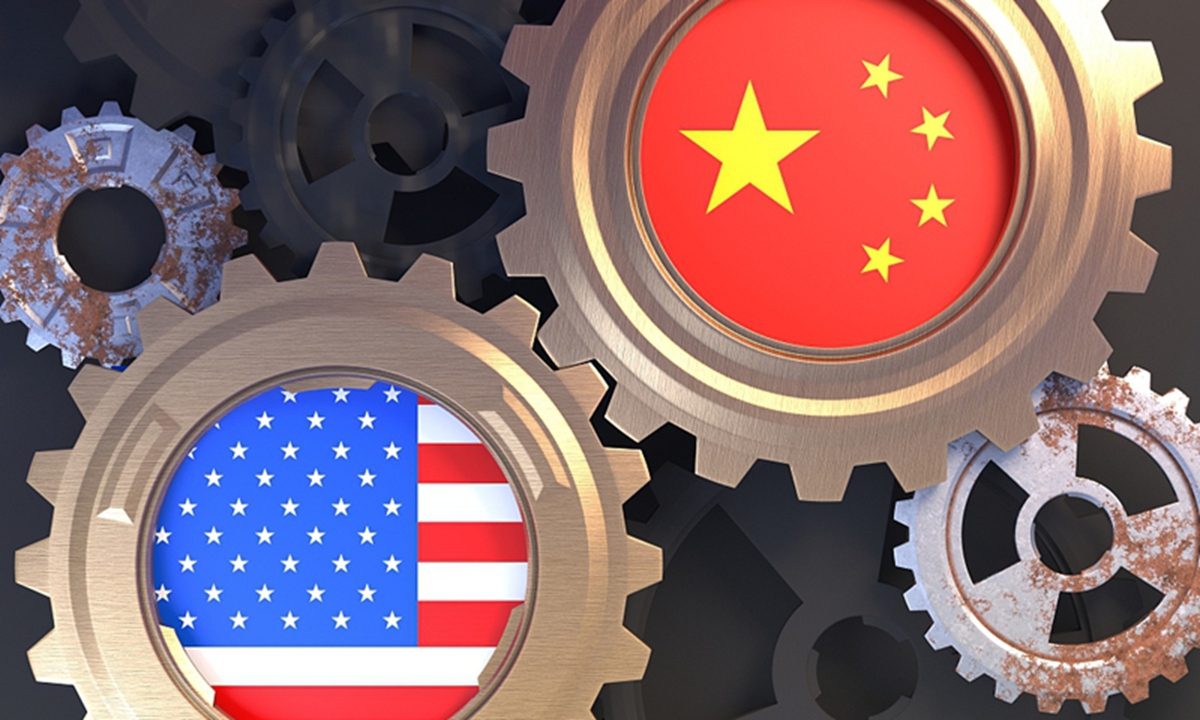
File photo: China US
The Politico, on November 8, published a piece on China-US relations. The article stated, “Voters in a rural Michigan town sent a message to their leaders Tuesday: don’t help China.” The article described this as “a potential warning signal” to President Joe Biden.
During the past year or two, American politicians and media have not hesitated to use the word “help” when discussing relations with China. Used in the past tense, the implication is that the US has assisted in China’s rise, and China is not currently reciprocating, leading to a sense of suffering a great loss. The report discusses the recent elections in Green Charter Township, Michigan, where five local Republican officials were removed from their positions for backing tax breaks for a multibillion-dollar battery parts plant tied to Gotion Inc., a Chinese company.
According to Politico’s report, this move breaks with the traditional view that “jobs equal votes.”
During this political event in a rural town, we observe a shift in the American attitude toward the rise of China. This shift has prompted Washington to adjust its strategy toward China, seeing it as its primary challenger.
Besides creating more than 2,000 jobs in this economically depressed region, this Chinese company’s production and technological capabilities in battery components will help revive the local manufacturing industry and contribute to raising the production level of this industry in the US. But Americans don’t see it like that. To them, America is helping China.
They believe that US investment in China helps China, and allowing Chinese companies to invest in the US also helps China. No matter how the Chinese and American economies interact, the US is helping China.
But who is looking out for the American people, including the residents of this town, who have relied on affordable products made in China for decades? And let’s remember how the profits of American companies in China have contributed to the growth of the American economy.
Of course, this is not to say that help does not exist in bilateral interactions between the two countries, and many stories of mutual help have long been widely circulated on both sides.
However, Americans, particularly US politicians, now approach economic and trade relations with China with the mindset of “I will not help you any longer,” a narrow worldview based on a superior civilization mentality.
The trade war with China, initiated by former president Donald Trump, has reached a point where American voters are concerned about how much the US is paying to maintain its “stop helping China” stance. However, American politicians will not disclose the amount being paid to their constituents.
China’s rapid economic growth has enabled its enterprises to accumulate capital and expand their market size, which cannot be reversed. If mutual investment between enterprises from both countries is increased, it will benefit everyone. However, viewing this cooperation as the US “helping China” will inevitably harm both parties.
China already possesses top-tier technology and high-quality production capacity in electric vehicles, batteries, solar panels, wind turbines and various manufacturing aspects. When Chinese enterprises invest in related areas in the US, it can be seen as China’s assistance to the US. Similarly, many American companies investing in China also contribute to developing China’s manufacturing industry.
It is now the turn of the Chinese people to take a top-down look at those on the verge of falling into the sunset industry in the US. If Americans are unwilling to “help China,” then they must do what Chinese workers are doing:
• Work twice as hard.
• Exert double the effort.
• Surpass rivals through learning, rather than discussing who helped who.
Americans are no longer qualified to view China with a benefactor mentality.
This post was originally published on Dissident Voice.

